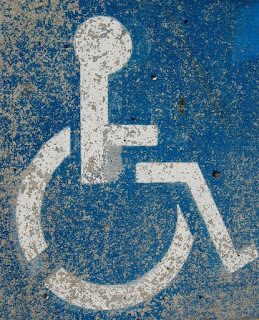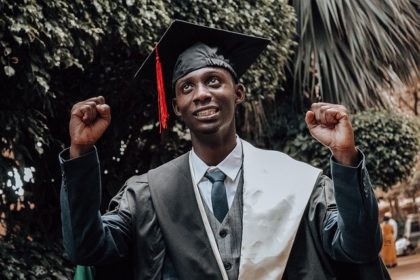Last Updated on October 12, 2025 by Michelle Ball
Transitioning from high school to college can be exciting and challenging for young adults. For a disabled postsecondary student, challenges increase exponentially. Supports will end, and a more independent education lies ahead. With proper student actions the transition can go smoother.

What Changes When a Disabled Student Transitions to a Postsecondary Institution?
Students leaving high school, where they got a lot of support (for example on an IEP- Individualized Education Program or 504 Plan) should be aware that the support levels will change drastically.
In a university, there are no IEP plans or processes, as all school IEP obligations vanish when the student graduates from high school. If a student had an aide when they were in high school, they are no longer entitled to that aide.
There are no mandatory “504 meetings” to develop accommodations and supports. There is no obligation for college staff to find the disabled student and do things for that student. Disability supports are student-initiated in a university.
The Student is Responsible for Getting Accommodations in College
In postsecondary institutions, the student is the one who will have to take steps if they want accommodations for a disability. The student has to reach out to the college disability office to assert that they have a disability and need accommodations. Students then have to work with the college on a plan and communicate it, per the college policy, to their professors in advance of needing agreed accommodations to be implemented.
Disability Laws Applicable in the University Setting
Section 504 obligations continue to apply with colleges accepting federal funds, and the ADA (Americans with Disabilities Act) applies to most colleges, excluding religious colleges.
For public colleges, students can also look to ADA Title II, and for private non-religious colleges, ADA Title III. Housing requirements may be covered by the Fair Housing Act. Other laws may also apply. However, no college is obligated to do anything unless they are notified by the student of their disabilities and needs.

Steps to Get College Accommodations
For student accommodations, the first step is to contact the college or university’s disabled students office, such as the “Student Disability Center” at the University of California, Davis (UCD), or the “Services to Students with Disabilities Office” at the California State University, Sacramento (CSUS).
Once a student makes contact, they should follow the procedures outlined by the college to become a registered disabled student. This may involve provision of various information about their disabling condition, as well as meetings to discuss the student’s needs in the classroom and at the college.
The discussion is typically called the “Interactive Process” during which the student should indicate what they think could assist them, with the postsecondary staff also offering ideas on potential effective accommodations to help meet the student’s needs.
Typically, there is a back and forth which may continue outside the student and disability office meeting process. With a qualified disabled student, a document will eventually be developed outlining what professors and the college must do to assist the student. The plan can also offer solutions for physical barriers and needs on campus, such as with regard to parking, accessible entrances and other items for the student to access their education and the campus.
Things a Postsecondary Institution Does Not Have to Do
The college is not obligated to alter the fundamental program in which the student must participate or the requirements for a degree, but they can set up items which can ensure the student proper access to the curriculum equal to other students.
Students Usually Have to Provide Plan to Professors
Often the disability plan must be taken by the student and provided to professors who will need to implement it, prior to classes starting and/or before the student wants the accommodations to take effect. This is different from during high school, where the obligation was on the school or school district staff to notify teachers and ensure an IEP was being implemented. Now, the obligation to notify university staff will likely be on the college student.

Problems Getting Plan Implemented?
If there are issues with enforcement, the postsecondary student can follow any internal complaint process to resolve issues, or they can also file complaints outside the college with the US Department of Education’s Office for Civil Rights or the US Department of Justice, Civil Rights Division, depending on the type of university.
If a Disabled Student is in Doubt About Getting a Plan
If you or a loved one are in college now, and have disabilities, but don’t know if you should get a formal support plan, it could be a good idea to meet with the university staff to discuss options.
Even if a student is having no apparent issues or needs, it is often best to get these plans in place before an issue arises. After problems due to lack of accommodations (which the student did not pursue) arise, the student cannot attack the college for “noncompliance” if the student either did not set up a a plan or failed to notify their professors about the plan per the college policies.
College and postsecondary student lawyer Michelle Ball can assist university students with disability issues, registration, enforcement, discrimination and other problems in the college setting. As an attorney in Sacramento California, Michelle can help at universities statewide such as UCLA, UCD, UCSB, UCM, UCB, other University of California colleges, CSUS, other California State Universities, and private colleges

